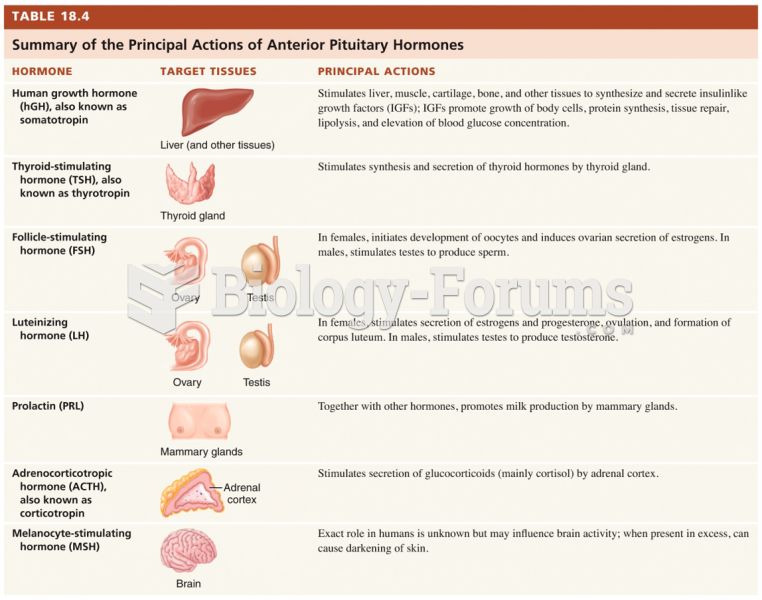|
|
|
The first oral chemotherapy drug for colon cancer was approved by FDA in 2001.
The strongest synthetic topical retinoid drug available, tazarotene, is used to treat sun-damaged skin, acne, and psoriasis.
Children with strabismus (crossed eyes) can be treated. They are not able to outgrow this condition on their own, but with help, it can be more easily corrected at a younger age. It is important for infants to have eye examinations as early as possible in their development and then another at age 2 years.
Signs and symptoms that may signify an eye tumor include general blurred vision, bulging eye(s), double vision, a sensation of a foreign body in the eye(s), iris defects, limited ability to move the eyelid(s), limited ability to move the eye(s), pain or discomfort in or around the eyes or eyelids, red or pink eyes, white or cloud spots on the eye(s), colored spots on the eyelid(s), swelling around the eyes, swollen eyelid(s), and general vision loss.
The immune system needs 9.5 hours of sleep in total darkness to recharge completely.
 Palpating the thyroid gland from behind the patient is a most effective way of assessing the gland f
Palpating the thyroid gland from behind the patient is a most effective way of assessing the gland f
 Two regions of the brain involved in sleep. The anterior hypothalamus and adjacent basal forebrain ...
Two regions of the brain involved in sleep. The anterior hypothalamus and adjacent basal forebrain ...





